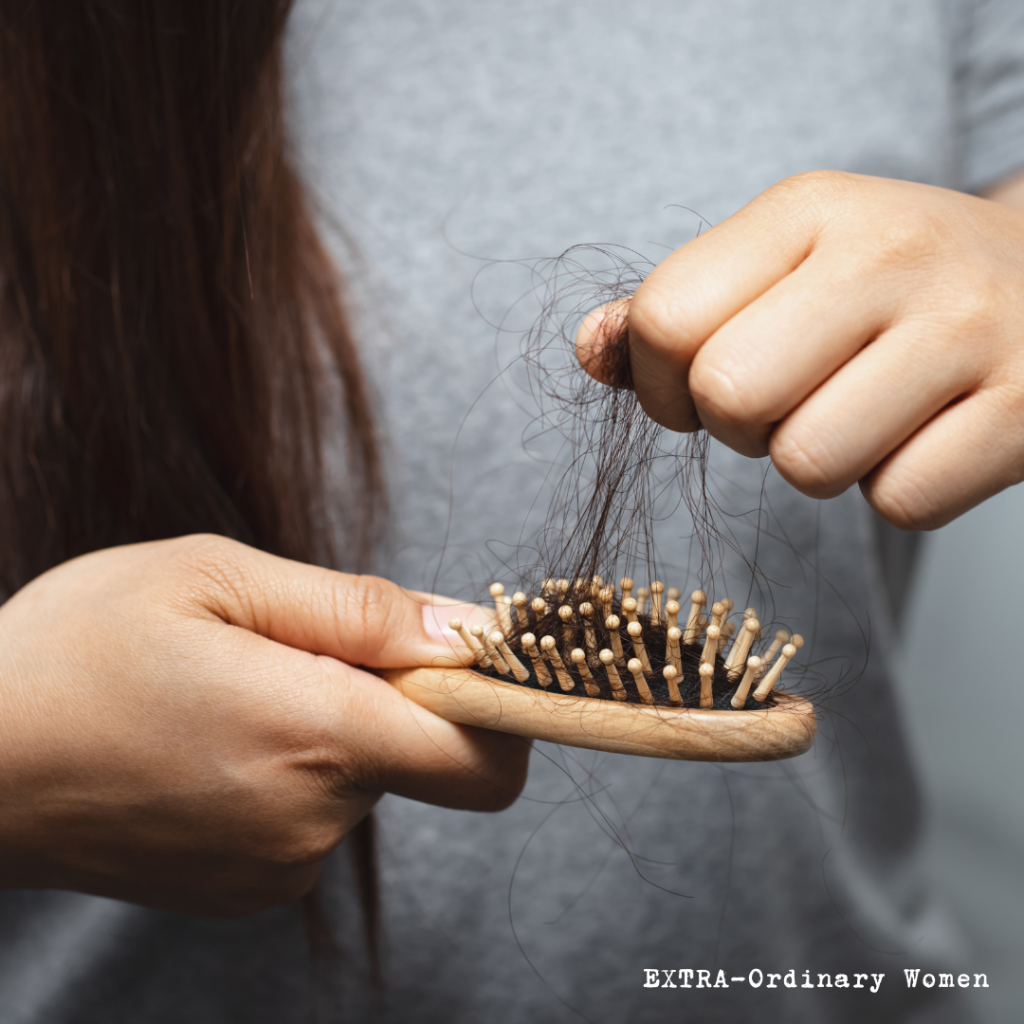Managing PCOS-Related Acne and Hair Loss: Tips for PCOS Awareness Month 2023.

It might not be unexpected for you to learn that someone close to you, be it a friend, sister, or coworker, has received a diagnosis of PCOS (Polycystic Ovary Syndrome). This condition affects approximately 6 to 10 percent of women globally.
PCOS leads to a disruption in the hormonal balance within a woman’s body, often resulting in menstrual irregularities. Women grappling with this condition face numerous challenges that not only impact their well-being but also challenge societal notions of the ideal body image.
Moreover, the rising incidence of PCOS among millennial women is a cause for concern, primarily because of its potential impact on fertility. According to data sourced from the National Institute of Health in India, a substantial 70 to 80 percent of women diagnosed with PCOS experience infertility. This underscores the critical importance of raising awareness, early detection, and effective management of PCOS, particularly among younger women.
As September marks World PCOS Awareness Month, it becomes crucial to discuss this condition and increase awareness about it. WION recently interviewed a medical specialist to gain insights into managing acne and hair loss caused by PCOS. Let’s explore what Ashwini Balerao Gandhi, a gynecologist and the founder of the Wonder Women community on coto, had to share on this topic.
Comprehending PCOS and its effects on hair and skin.
Polycystic Ovary Syndrome (PCOS) is characterized by the excessive production of male or androgen hormones in women. This hormonal imbalance and anovulation often result from insulin resistance. Among the prevalent PCOS symptoms are increased facial and chest hair growth, weight gain, or challenges in weight management, and the presence of darkened skin patches, known as acanthosis, typically on the back of the neck and other areas. A fundamental aspect of PCOS is the elevated levels of androgens, which are typically male hormones but are naturally present in all women, albeit in smaller quantities.
Acne and hair loss represent merely a couple of the issues stemming from elevated androgen levels. PCOS exerts a substantial influence on both skin and hair conditions. Elevated testosterone levels trigger an excessive sebum production, which in turn contributes to the emergence of acne, typically concentrated on the jawline, cheeks, chin, and upper neck.
The hormonal acne linked to PCOS is not just uncomfortable but can also be painful, frequently manifesting as enduring cysts. Androgens can result in excessive hair growth in areas like the face, chest, or back, a condition known as hirsutism. Additionally, some individuals may encounter thinning or hair loss along the frontal hairline, often attributed to an excess of testosterone or androgens, which can render hair thinner, more fragile, and susceptible to shedding.

Addressing acne and hair loss in women with PCOS requires a comprehensive strategy. Here are several measures to contemplate:
Seek Guidance from a Medical Expert: Initiate your journey by seeking guidance from a healthcare professional, preferably a dermatologist and an endocrinologist specializing in PCOS. They can offer personalized recommendations and treatment options tailored to your unique circumstances.
Adopt a Balanced Diet: Emphasize a well-balanced diet featuring an abundance of fruits, vegetables, lean proteins, and whole grains. Reduce your consumption of processed foods, sugary snacks, and excessive dairy, as these can exacerbate hormonal imbalances.
Incorporate Regular Physical Activity: Incorporate regular physical activity into your routine. This can enhance insulin sensitivity, which is often a concern for those with PCOS. Aim for a minimum of 150 minutes of moderate exercise per week.
Stress Alleviation: Incorporate stress-relief techniques into your routine, such as yoga, meditation, deep breathing exercises, or any activity that promotes relaxation. Elevated stress levels can contribute to hormonal imbalances.
Medications: Depending on your specific symptoms, your healthcare provider may prescribe medications such as hormonal contraceptives, anti-androgens, or insulin-sensitizing agents. These medications can aid in hormone regulation and symptom management, including the control of acne and hair loss.
Topical Solutions for Acne: Your dermatologist might suggest topical treatments containing ingredients like benzoyl peroxide, salicylic acid, or retinoids to assist in acne management.
Effective Skin Care: Create a gentle skincare regimen that involves cleansing, exfoliating, and moisturizing. Steer clear of abrasive products that may provoke skin irritation.
Hair Maintenance: Opt for mild shampoos and conditioners. Minimize excessive heat styling and avoid tight hairstyles that can strain the hair shaft. For tailored hair care guidance, contemplate consulting a dermatologist.
Supplementary Support: Certain women with PCOS may find potential benefits from supplements such as omega-3 fatty acids, zinc, and inositol. Nevertheless, it’s advisable to consult your healthcare provider before introducing any new supplements into your routine.
Regular Check-Ins: Maintain scheduled appointments with your healthcare professionals to monitor your progress and make any necessary adjustments to your treatment regimen.
Keep in mind that patience is essential, as visible improvements may take time. Additionally, what proves effective for one person might not yield the same results for another, underscoring the importance of close collaboration with your healthcare team to identify the most suitable approach for your unique situation.
Managing the challenges of PCOS-related acne and hair loss can be emotionally taxing, but effective treatments are available. Seeking guidance from specialized healthcare experts such as dermatologists and endocrinologists is pivotal in crafting personalized treatment strategies tailored to your specific requirements. By embracing a healthy lifestyle and adhering to appropriate skincare and haircare routines, coupled with professional support, you can significantly enhance your overall well-being and mitigate the impacts of PCOS on your skin and hair. While visible improvements may require some patience, with commitment and expert guidance, you can regain confidence in your appearance.



